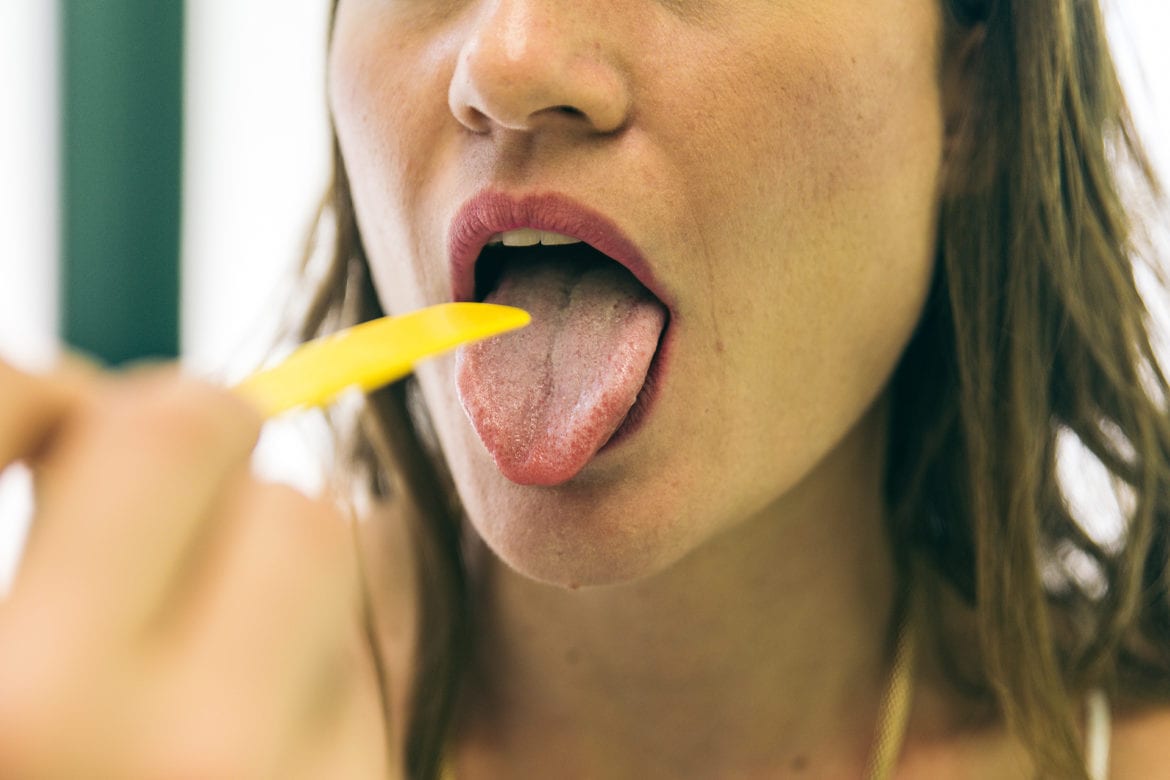Black tongue (or black hairy tongue) is a harmless (benign) condition. Even though the name sounds scary, the condition is not usually a cause for worry. A black tongue can happen for several reasons, including poor dental hygiene. The treatment for the condition is usually simple.
Here’s what you need to know about what causes black tongue, what to do if you have the condition, and when you should see your doctor or dentist.
Black tongue is more common in older people but can happen at any age. The condition might be more common in men than women, however, the condition is more strongly linked to the smoking status and oral hygiene habits of an individual.1
Black tongue is often related to poor dental hygiene, but there are also other risk factors including:
- Drinking a lot of coffee or tea
- Tobacco use
- Excessive alcohol consumption
- Certain medications
- Some mouthwashes
- Dehydration
- Intravenous drug use
- Cancer
- Trigeminal neuralgia
- Compromised immune system
- Radiation therapy
- Dry mouth
Certain medications are associated with black tongue including:
- Erythromycin
- Doxycycline
- Penicillin
- Tetracycline
- Lansoprazole
- Neomycin2
- Olanzapine
- Erlotinib
- Linezolid
Symptoms
Although the name for the condition implies that the tongue turns black, the discoloration can also be brown, white, or yellow. The discoloration is typically focused on the center of the tongue.4
DermNet NZ. Hairy tongue. Updated December 2014.
Some people do not experience other symptoms. However, other symptoms that may occur with black tongue include:
- Bad breath
- Change in the way food tastes
- Burning sensation
- Gagging sensation
- Tickling sensation3
- Nausea
When To See Your Doctor or Dentist
Black tongue is usually easy to treat at home, but discoloration in the mouth can sometimes be a symptom of more serious conditions.
If you have discoloration on your tongue, make an appointment with your doctor. You might also need to see your dentist.
Diagnosis
Doctors and dentists can usually diagnose black tongue just by looking at your mouth. If there’s any doubt about the diagnosis, your doctor may want to do more tests. For example, perform a biopsy to rule out cancer.3
Cleveland Clinic. Black hairy tongue. Updated September 7, 2018.
Other tests that might be needed include:
- Bacterial culture swabs
- Fungal scrapings
Other Conditions
There are a few other conditions that can look similar to black tongue, including:
- Oral hairy leukoplakia (a condition caused by Epstein-Barr virus)
- Pigmented fungiform papillae of the tongue
- Acanthosis nigricans
Treatment
You can prevent black tongue by maintaining good oral hygiene. Scraping or brushing the tongue can prevent food and bacteria from getting stuck on the tongue’s surface. When possible, try to avoid things like substances or medications that are known to cause black tongue.
For example, if a medication that you take is the cause of black tongue, your doctor might suggest changing to a different prescription.
Likewise, if the tongue discoloration is related to something you frequently eat or drink, dietary changes—like cutting out or limiting your intake of alcohol, coffee, or tea—can also help.
If you see your dentist about black tongue, they might suggest that you stop using mouthwashes that contain peroxide.

